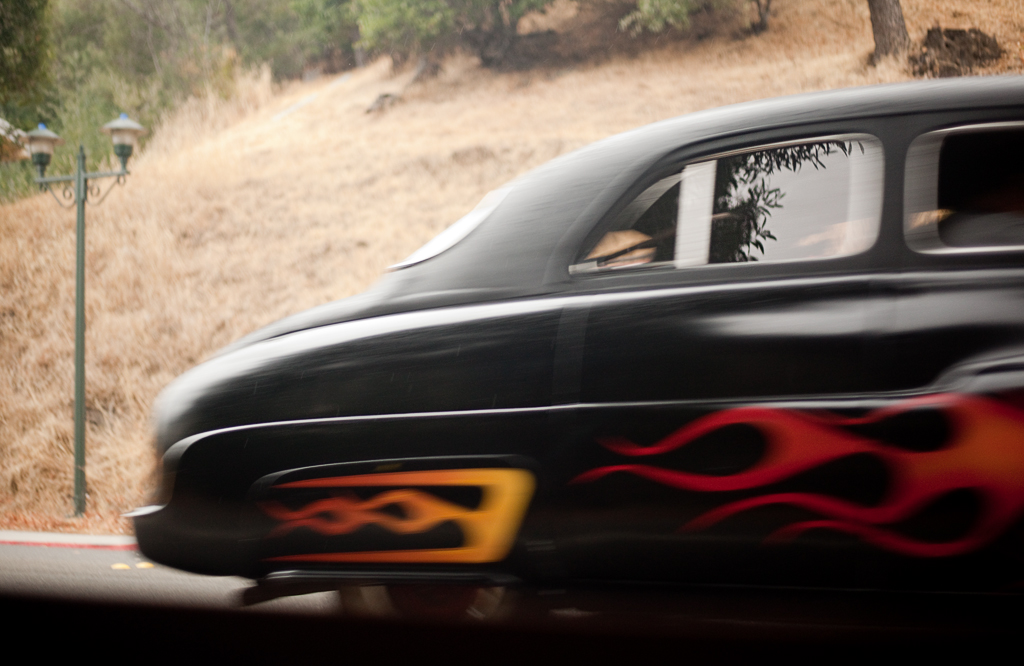unaturally selective focus draws fire... [ pun intended ]
I posted this photograph on another forum in a depth of field "assignment".
I did not make any notes nor annotations as to how it was taken nor what I might have been aiming for in making it.
The first comment on the photograph was quite unusual in that the poster appeared certain that I had done the "blurring" of the automobile.
The odd fact of the matter is that other than adjusting a few curves and doing some output sharpening I didnt "do" anything to the image.
How it happened that one rather tiny area in an image captured form a fair distance ended up in fairly sharp focus while the remainder along the same plane, blurred is beyond my ability to understand.
Its my hope that there would be someone "here" who might lend thier understanding of optical physics so I can understand how such a thing was possible.
Let me add that this was taken at 1/1000 of a second at f1.8, with a 50 mm lens.
Thanks
